What Singapore can learn from the Chew Shou Zi phenomenon
Lee Huay Leng, editor-in-chief of SPH Chinese Media Group, observes that the spotlight cast on Singaporean TikTok CEO Chew Shou Zi at a US Congress hearing recently is a good entry point for us to think about the role that Singapore can play in the new world order, besides the larger topics such as TikTok and China-US relations.
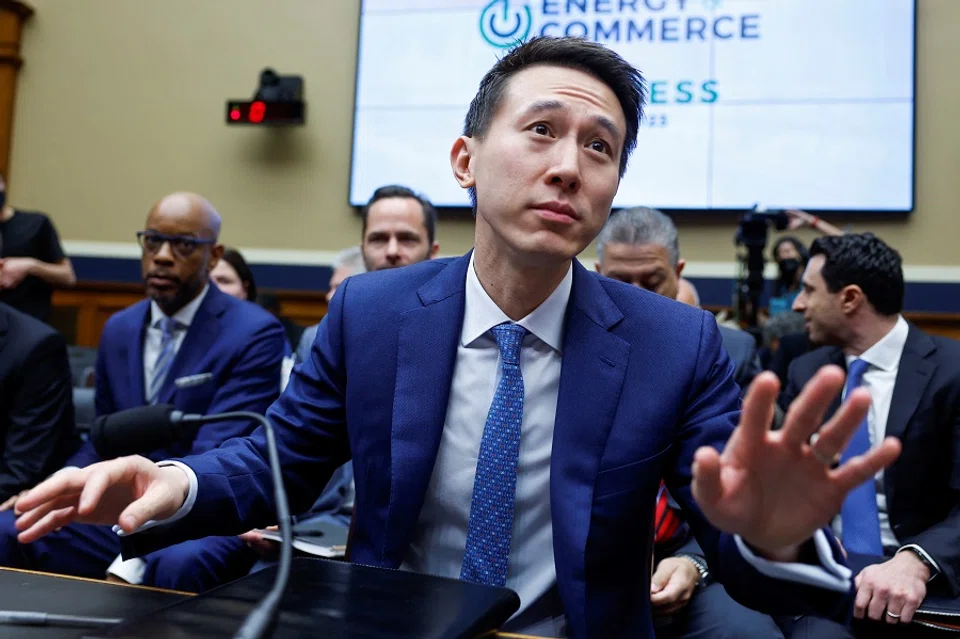
On the night of 23 March, I watched as TikTok CEO Chew Shou Zi was put on trial by the US House Committee on Energy and Commerce - yes, indeed it felt like a "trial". Some friends said that it seemed like a "judgement without trial" while others thought it was not a "hearing" but a "showing" - a showing by US lawmakers. The attitude of the US Congress reminded me of something Chinese State Councilor and Foreign Minister Qin Gang said at the Two Sessions - the US expects China not to "respond in words or action when slandered or attacked".
Although the US representatives who took the floor spoke for less than five minutes each, some were less interested in getting answers than in delivering their speech, prepared with the full intention of lambasting TikTok. Other representatives were aggressive and only wanted Chew to give "yes" or "no" answers, without allowing him to explain more. The representatives were clearly targeting the Chinese Communist Party (CCP), insisting that TikTok's data could be accessed by the CCP. Some representatives were also deeply concerned and distressed about the ill effects of social media on youths.
Poise in lieu of clear answers
TikTok is owned by Beijing-based ByteDance. Amid China-US rivalry, Chew, on behalf of the company, pledged to safeguard US data and reduce the negative effects of social media on youths as much as possible. But at this point in time, it is quite impossible to gain the trust of US lawmakers. Besides, there were indeed some questions that Chew simply could not answer.
For example, a US representative asked, "Does TikTok access the home wifi network?" Another questioned, "Can you say with a hundred per cent certainty that TikTok does not use the phone's camera to determine whether the content that elicits a pupil dilation should be amplified by the algorithm?"
... Chew's task was not to refute the allegations, as this would not be in TikTok's interest. Instead, Chew's task was to maintain his poise and appear sincere and composed.
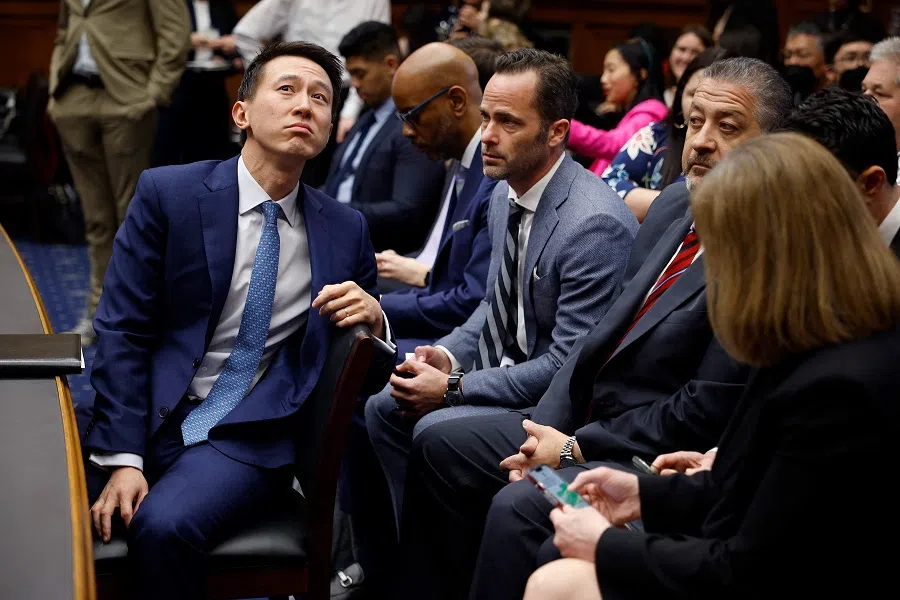
For questions that he could get a word in, Chew always reiterated TikTok's position and addressed US lawmakers as "Congressman" or "Congresswoman". The nonsensical and absurd questions posed by some of these congressmen or congresswomen ironically highlighted Chew's composure instead.
Throughout the five-hour hearing - Chew would probably have rehearsed this with his company beforehand - Chew's task was not to refute the allegations, as this would not be in TikTok's interest. Instead, Chew's task was to maintain his poise and appear sincere and composed.
Of course, some people remarked that Chew is just a Singaporean paid by a Chinese company to be scolded by the Americans. At the hearing, Chew reminded the US Congress that he is a Singaporean and that his wife is Taiwanese American. A Singaporean at its helm adds to TikTok's "globalised" branding.
National interests on all sides
A few thoughts crossed my mind while watching Chew in the live broadcast. First, confrontation in international relations is more about national interest than it is about justice. China protects media content within its borders for its own reasons and uses unapologetic and straightforward methods. On the other hand, the public will have to make up its own as to whether the US is truly safeguarding data for national security reasons, or simply using seemingly transparent legal procedures to protect its social media companies operating under free market conditions.
... but as events unfold, when put under certain situations and even inadvertently, the side that you are on may not necessarily have been your choice.
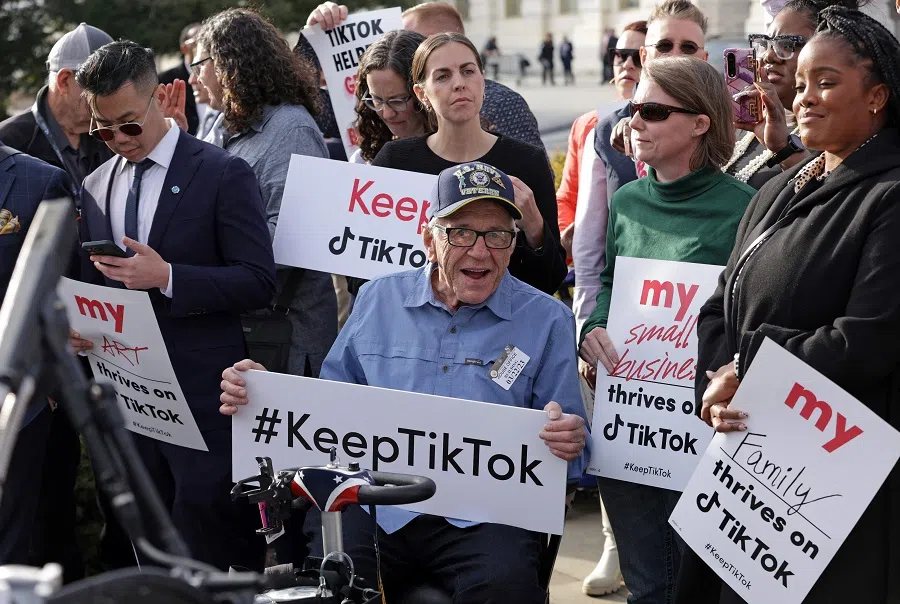
Second, in a previously more peaceful and globalised world, Singaporeans held key positions in multinational corporations, and it was a source of pride for the country. Now, amid clear opposition and sharp contradictions between camps, part of the corporate testing of a Singaporean in a key position in a multinational corporation is being mentally prepared for a five-hour grilling under the political limelight; the community he belongs to will take pride in his achievements but also bear some of the pressure he faces.
While Chew got here due to his career choices, the reality is that this "trial" does have a Singaporean element to it. In the current climate, Singapore has its own interests to uphold and its position is firm, but it may be put in the spotlight of global tensions at any time. In recent years, we have become familiar with the term "picking sides", but as events unfold, when put under certain situations and even inadvertently, the side that you are on may not necessarily have been your choice.
Chew straddles two different language worlds. Does that inspire young people? What do they see when they look at him?
Straddling two worlds
Third, given his position as TikTok CEO, every video on Chew Shou Zi's personal TikTok account affects his and the company's image, which calls for careful planning and corporate strategy considerations. His recent performance has gained him many fans.
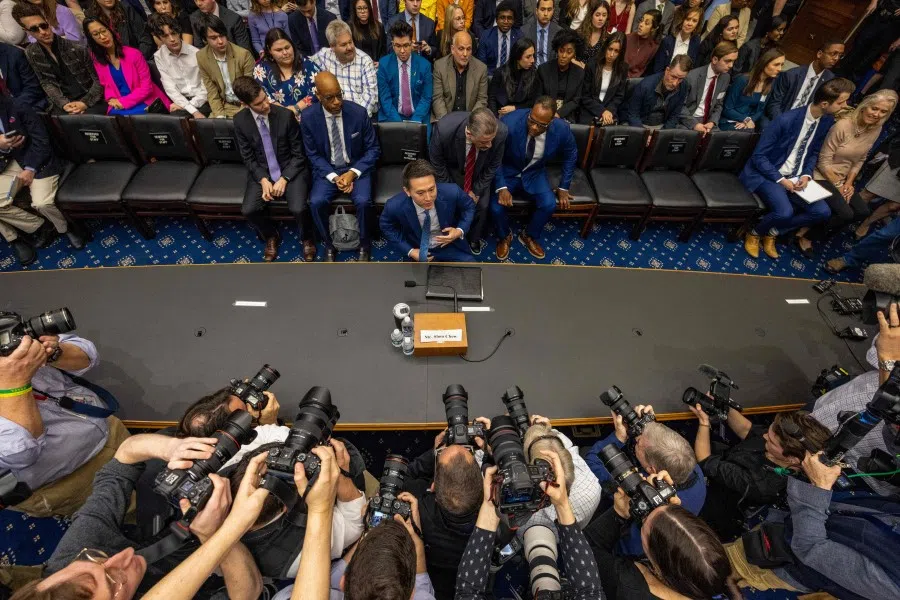
One of my young colleagues was in the same year as Chew at Hwa Chong twenty years ago. She said even back then, everyone knew that this good-looking member of the canoeing team created a stir among girls whenever he walked by. Two decades later, his appearance has also floored some fans, but would his performance in giving his all on the world stage cause another kind of stir among young Singaporeans?
Chew speaks English with a slight American accent, including in the short clips that came out before and after the hearing, and has not been heard to speak any Mandarin. Given the company he now represents and his previous work experience with Chinese enterprises, Chew straddles two different language worlds. Does that inspire young people? What do they see when they look at him?
The fact is that language proficiency is only a basic requirement. He may not be a diplomat or a military officer amid the intense competition among major powers, but as someone in financial management working for a private technology enterprise, he must have some understanding of complex international relations, politics, and even cultures to have got to a certain level in his career.
Schools now teach children coding, which is seen as a necessary skill for the future. I believe that language can also be considered a fundamental and necessary skill for the present and future.
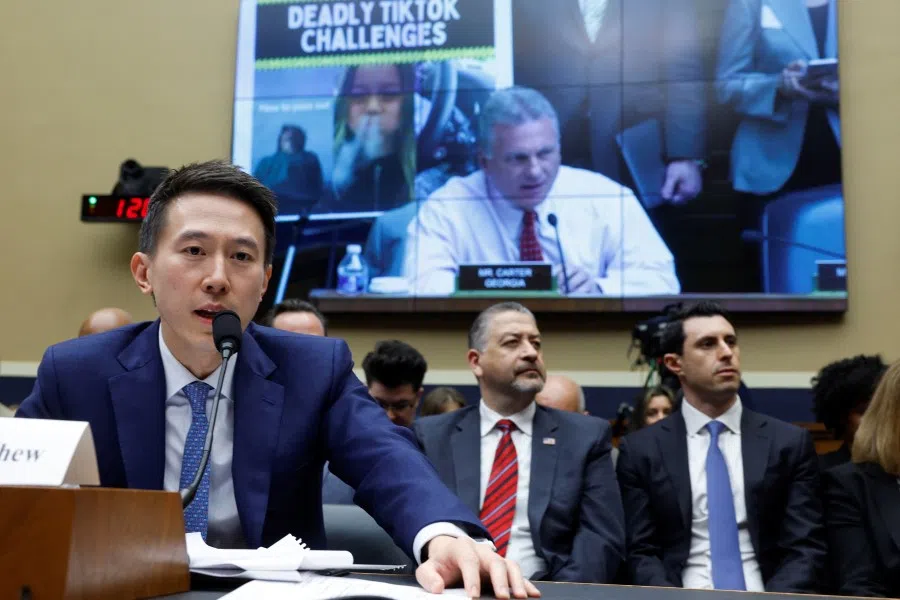
Chew received his basic education in Singapore and then moved on to higher education in the UK and the US. However, he got his career training in China. While he seems to shine now, along the way he would have put in hard work and gained experience, and taken tumbles. Even if opportunities do appear, they are only for the prepared.
Singapore always plans and prepares for the future. Schools now teach children coding, which is seen as a necessary skill for the future. I believe that language can also be considered a fundamental and necessary skill for the present and future. However, while skills are essential, in this era of significant changes in the world order, policymakers, parents, and children themselves may need to take heed of what they see, to understand what the "future" means to us, and assess how far we are from that "future".
The Chew Shou Zi phenomenon is a good entry point for us to think about Singapore's place in this new world framework and its role in talent development, besides the larger topics such as TikTok and China-US relations.
This article was first published in Lianhe Zaobao as "好个周受资,然后呢?".
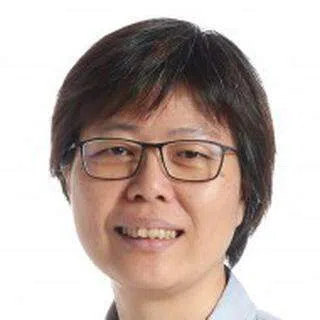


![[Big read] When the Arctic opens, what happens to Singapore?](https://cassette.sphdigital.com.sg/image/thinkchina/da65edebca34645c711c55e83e9877109b3c53847ebb1305573974651df1d13a)
![[Video] George Yeo: America’s deep pain — and why China won’t colonise](https://cassette.sphdigital.com.sg/image/thinkchina/15083e45d96c12390bdea6af2daf19fd9fcd875aa44a0f92796f34e3dad561cc)
